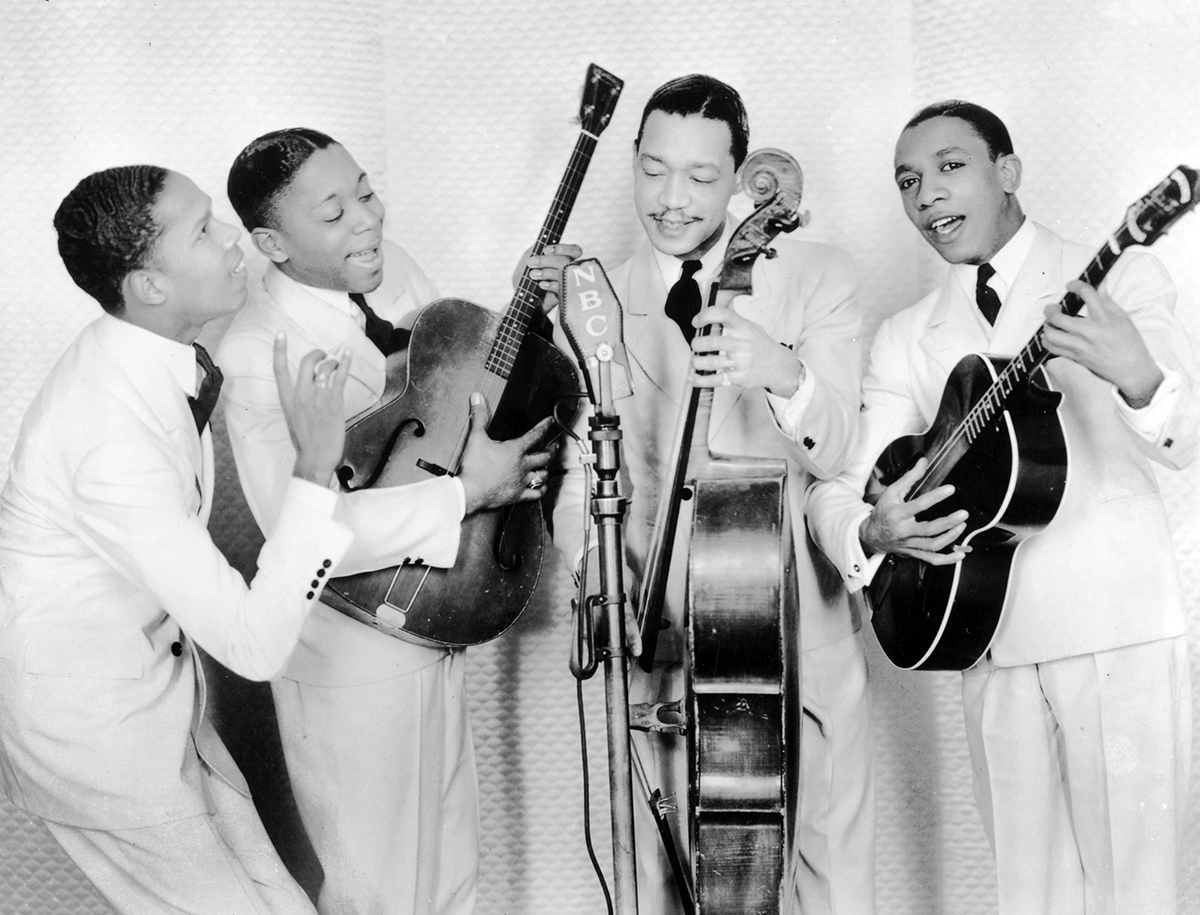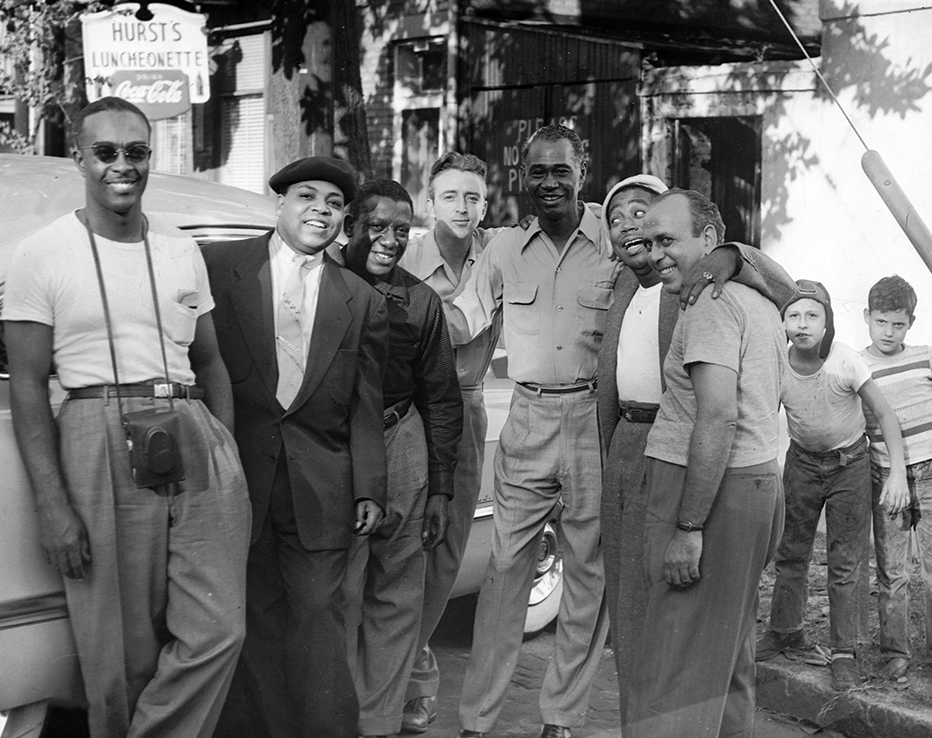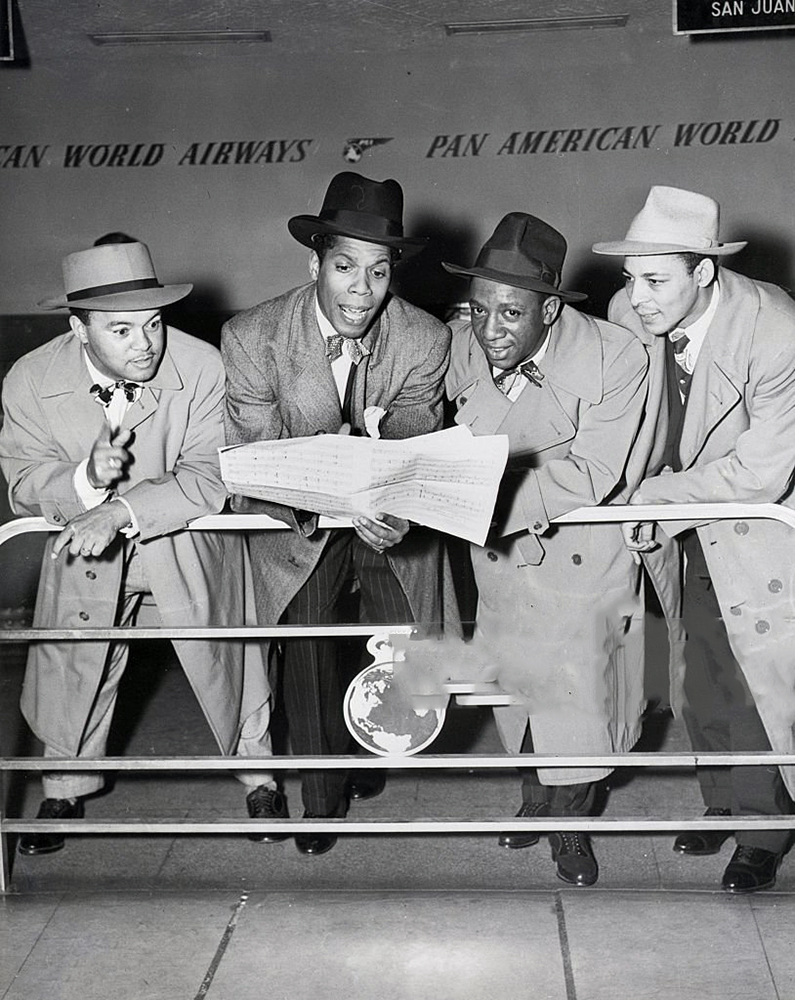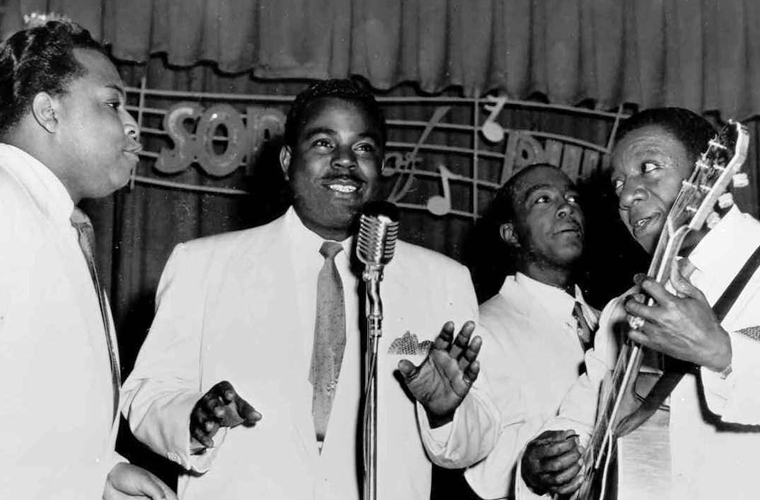The Ink Spots, a musical quartet, originally included members Orville “Hoppy” Jones, Ivory “Deek” Watson, Jerry Daniels, and Charlie Fuqua. Some accounts claim Slim Greene also was a founding member. Influenced by the Mills Brothers, all four members sang together under the name “King, Jack, and the Jesters” in 1932. In late 1933, the group renamed itself the Ink Spots.

The Ink Spots toured Britain in 1934 and their overseas success earned them a recording contract with Victor Records. In 1935, they recorded their first four songs, including “Swinging on the Strings.”
In 1936, Daniels left the group and Bill Kenny replaced him. Around this time, the Ink Spots signed with Decca and began developing its distinct sound. The group’s vocal arrangements and use of guitar riff song introductions would influence future generations of doo-wop, rhythm and blues, and rock and roll musicians, including Elvis Presley and the Beatles.
With the release of “If I Didn’t Care” (1939), the Ink Spots became one of the most popular quartets in the United States. The group’s success continued throughout the 1940s with hits such as “We Three” (1940), “I Don’t Want to Set the World on Fire” (1941), “I’m Making Believe” (1944), “The Gypsy” (1946), and “To Each His Own” (1946). The group also appeared in the films The Great American Radio Broadcast (1941) and Pardon My Sarong (1942). Throughout World War II, the Ink Spots performed for the troops. In 1944, they had another hit with “Cow-Cow Boogie,” which they recorded with Ella Fitzgerald.

By 1950, the Ink Spots’ popularity began to decline, but they remained in demand on the college circuit. As original members left the quartet, various singers performed with the group, including Bernie Mackey, Cliff Givens, Billy Bowen, Huey Long, Herb Kenny, Adriel McDonald, Teddy Williams, Ernie Brown, and Jimmy Kenny.
Starting in the 1940s, the quartet sued imitation groups using the Ink Spots name, but its legal problems increased when Fuqua and Kenny each formed groups called the Ink Spots in 1952. The Decca Ink Spots officially played their last concert in 1953.

Since the original Ink Spots disbanded, dozens of Ink Spots imitators have formed and recorded. Most of these groups have no connection to the Decca Ink Spots. “If I Didn’t Care” was inducted into the National Academy of Recording Arts and Sciences in 1987. The Ink Spots also were inducted into the Rock and Roll Hall of Fame (1989) and Apollo Theatre Hall of Fame (1993).

